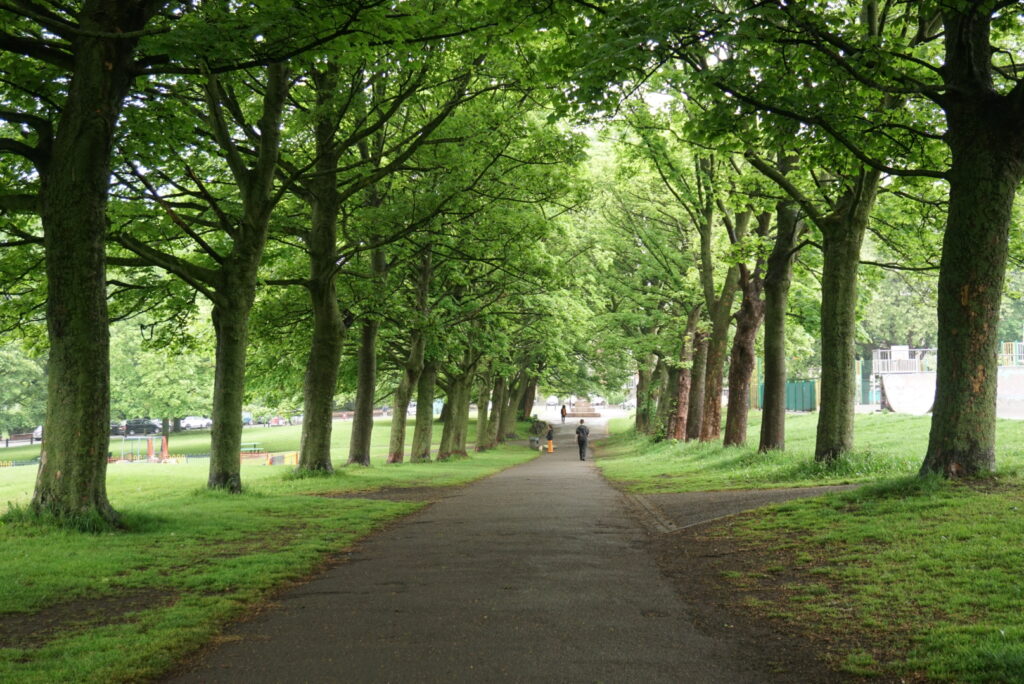When did you last walk in a park? Sit in a garden? Venture out for a ramble in the countryside? What was the effect it had on you? We all instinctively know that being in nature is beneficial for us, but do we know why? Well, even scientists aren’t entirely sure why green spaces are so important for our mental wellbeing, but the research overwhelmingly confirms what we probably already know. Nature makes us happier and healthier.
There are the obvious things. We are more likely to exercise in a green space. Walking through Hyde Park with my dog yesterday, I saw a lively football match, people playing tennis, skateboarders, joggers, walkers, and even a group doing circus skills and acrobatics. It can also provide a place for socialisation – something vital to our wellbeing. Beyond that there is less noise and air pollution, and greenery can also boost our immune system through exposure to beneficial microbiota. One of the most important benefits of green spaces is something psychologists call ‘psychological restoration’. Simply put, it calms overstimulated minds. When our brains are overactive, they trigger a stress response and long term, chronic stress leads to numerous psychological disorders including anxiety, depression, phobias and OCD. This outcome is also dose-dependent – the longer you spend in nature, the stronger the effect. A Danish study found that the amount of access to green spaces children had while growing up, was one of the strongest predictors of their risk of developing psychological disorders as adults, comparable to family history of mental ill health.

Last week, my husband and I walked the Meanwood Valley Trail from Headingley to Golden Acre Park. It takes you through Meanwood Park to Adel Woods and across farmland to finish at Golden Acre Park (with a lovely café and gardens as a reward!) I love to take photos as I find I become much more aware of my surroundings. Patterns, colours, light and unusual objects are noticed more keenly. Being a reflective sort, as we walked, I noticed my mood change. I expected to feel happy and relaxed, which I certainly was, but I started to ponder the sense of excitement that being in the countryside always invokes in me. As a child, my friends and I would be evicted from our homes on weekends and holidays and told to “go out and play”. I was fortunate that I had access to woodland, farmland and a park, so going out to play would entail climbing trees, building dens, catching frogs and small creatures and making them “houses”; whittling bows and arrows to shoot our older brothers; and generally going a little feral. Being outside in nature still evokes those childhood feelings of a bountiful playground full of resources for fun and games. And yes, I still climb the odd tree.
The new Climate Innovation District being constructed in Leeds is a pioneering community of homes being built with sustainability and environmental technology at its heart. But beyond the zero-carbon passive homes, there is significant consideration of what a community needs, and because of this, none of the houses have gardens. Green spaces are communal and managed by wardens with a remit to increase biodiversity and promote the native flora and fauna of the river Aire. This flies in the face of the modern trend to make gardens an ‘additional room’. Many gardens now contain fewer plants and more decking, sofas, barbeques and patio heaters. And that’s if they aren’t being paved over as a parking space. We are neglecting the important benefits our gardens can bring us, for those of us privileged enough to have them.
It’s no coincidence that gardens feature in some of the most important parts of the bible. Jesus went to pray in the Garden of Gethsemane after the Last Supper, and was betrayed there; he was buried in a garden near Golgotha; after his resurrection, he was mistaken for a gardener by Mary Magdalene; and of course, the Garden of Eden was created as paradise on earth by God for Adam and Eve. Green spaces are a gift to us; to keep us healthy and happy, to be played in, to view and wonder at creation and to notice just how beautiful the world really is.